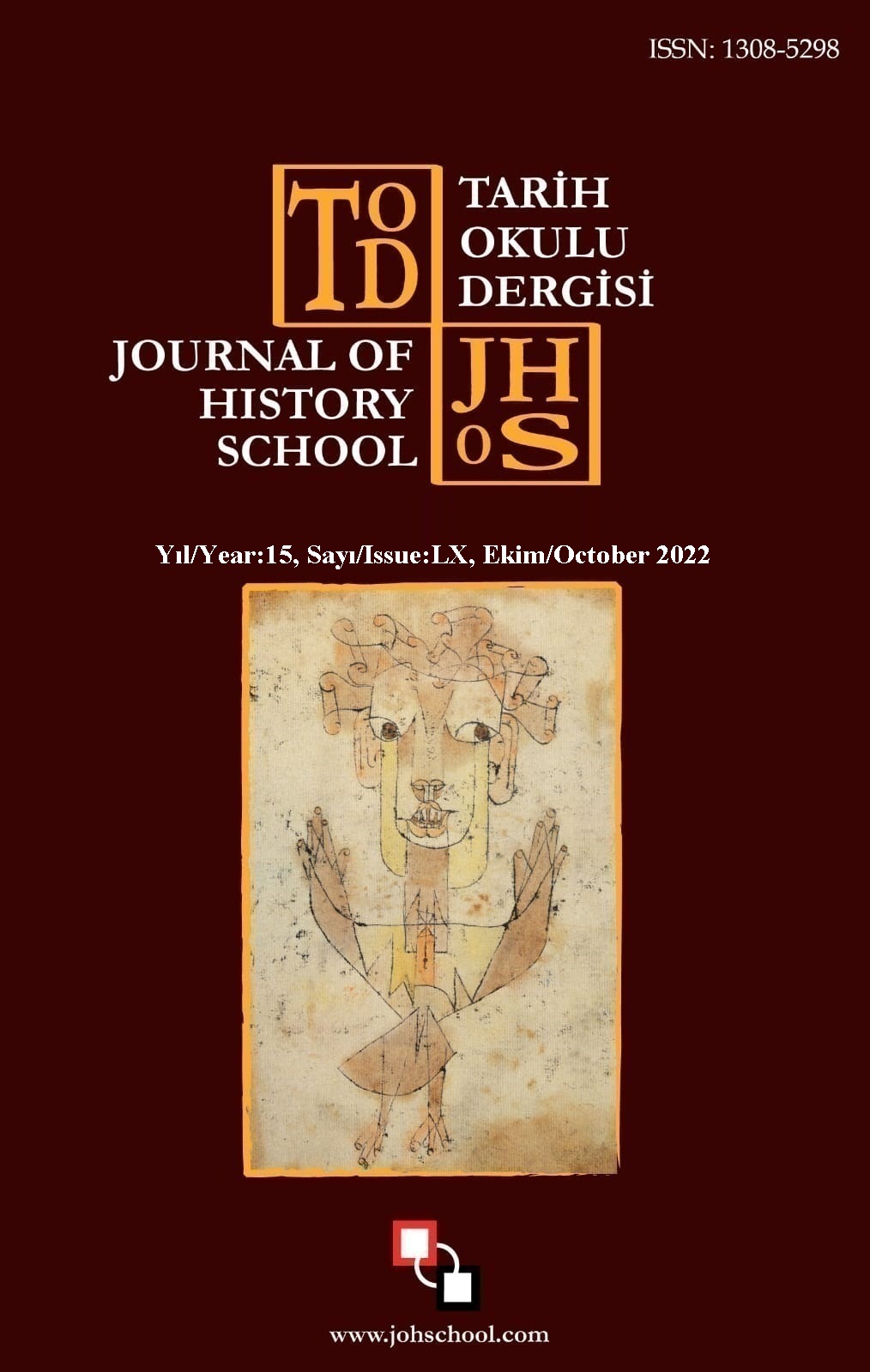Author :
Abstract
Bu araştırmada, ortaokul öğrencilerinin öğrenmeye yönelik sorumluluklarının belirlenmesi amaçlanmıştır. Araştırmanın çalışma grubunu, 2020-2021 eğitim-öğretim yılında Elazığ ilinde kamu ortaokullarında öğrenim gören ortaokul öğrencileri oluşturmaktadır. Araştırmanın nicel boyutta 654, nitel boyutta ise 38 ortaokul öğrencisi oluşturmaktadır. Bu çalışmada karma yöntemin yakınsayan paralel karma deseni kullanılmıştır. Çalışmadaki hem nicel veriler hem de nitel veriler aynı zamanda toplanmıştır. Daha sonra ayrı ayrı analiz edilmiştir. Nicel veriler için “Öğrenmeye Yönelik Sorumluluk Ölçeği” kullanılmıştır. Ölçeğin Cronbach Alfa güvenirlik değeri .94’tür. Nicel verilerin analizinde betimsel istatistikler, t-testi ve ANOVA testi uygulanmıştır. Çalışmanın nitel verileri için araştırmanın amacına uygun olarak yarı yapılandırılmış görüşme formu geliştirilmiştir ve verilerin analizinde betimsel analiz tekniğinden yararlanılmıştır. Araştırmanın sonucuna göre, ortaokul öğrencilerinin öğrenmeye yönelik sorumluluklarının yüksek düzeyde olduğu görülmüştür. Ortaokul öğrencilerinin öğrenmeye yönelik sorumluluk düzeylerinin cinsiyet ve sınıf değişkenine göre anlamlı farklılık tespit edilmiştir. Anne ve baba eğitim durumuna göre ise anlamlı farklılık bulunmamıştır. Öğrencilerin iyi bir meslek ve iyi bir gelecek sağlamaları için öğrenmenin önemli olduğunu belirtmişlerdir. Gürültü ve seslerin olması, kendilerine ait odalarının olmaması ders çalışma motivasyonlarını azaltırken; başarılı olmak, öğretmenlerin kendilerini motive etmesi ders çalışma motivasyonlarının artırdığını ve öğrenmeye daha istekli olduklarını ifade etmişlerdir. Ders çalışmadıklarında ise kendilerini tedirgin hissetlerini belirtmişlerdir. Böylece öğrencilerin öğrenmeye yönelik sorumluluklarının bilincinde oldukları söylenebilir.
Keywords
Abstract
Purpose of this study was to determine learning responsibilities of secondary school students. Study were secondary school students that attend public secondary schools in Elazığ during 2020-2021 academic year. Sample of the study was made up of 654 secondary school students in qualitative and 38 secondary school students in qualitative dimension. In this study, the convergent parallel mixed pattern of the mixed method was used. Both quantitative and qualitative data in the study were collected at the same time. Afterwards, they were analyzed separately. “Learning Responsibility Scale” was used for quantitative data. The Cronbach Alpha reliability value of the scale was 0.94. During analysis of quantitative data, descriptive statistics, t-test and ANOVA test were applied. In the collection of qualitative data, an interview form was developed in accordance with the purpose of the study. In the analysis of qualitative data, descriptive analysis method was used. According to the results of the study, it was observed that secondary school students had a high level of learning responsibilities. A significant difference was found in how secondary school students responsibility levels according to gender and class variables. There was no significant difference according to the education level of the mother and father. It was noted that learning was important for students to get a good job and build a good future. While the presence of noise and not having their own rooms decreased their motivation to study, they noted that being successful and being motivated by teachers increased their motivation to study and willingness to learn. It could be argued that they stated they felt uneasy when they do not study, thus they were aware of their learning responsibilities.





